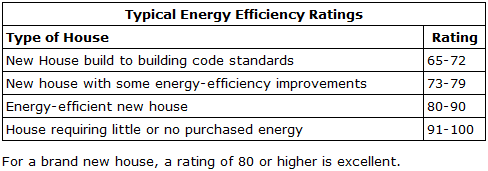There are a variety of rating systems available to eco-consious buyers, here is a quick list with definitions, and links:
1. LEED (Leadership in Energy and Environmental Design) and was originally designed for commercial buildings, but is now used for residential energy rating as well. LEED Canada for Homes is the body “that promotes the design and construction of high-performance green homes”. Builders earn points that represent the style of construction used, and the ongoing use of the home after completion. Depending on the level of points earned a home is rated as LEED Bronze, Silver, Gold or Platinum (highest rating available). This rating can be both costly and time consuming to achieve, but is a great representation of a home’s actual impact on the environment.
2. EnerGuide Rating System is a ”standard measure of your home’s energy performance. It shows exactly how energy efficient your home is” (Natural Resource Canada). A home’s energy efficiency level is rated somewhere between 0-100, and the rating of 100 represents a fully airtight and well insulated home. This rating system measures how much power a home uses.
 (Chart courtesy of Natural Resource Canada Website)
(Chart courtesy of Natural Resource Canada Website)
3. ENERGY STAR home has an EnerGuide rating of 80 or better and typically contains ENERGY STAR products throughout the home. ENERGY STAR for New Homes initiative promotes guidelines that builders can use to construct energy efficient new homes. ENERGY STAR for New Homes uses the same logo as the familiar labeling program for appliances and electronics and is a quick way to judge whether a home is energy efficient or not.
4. BuiltGreen™ is a third party certified home rating system and the EnerGuide Rating System is part of the certification process. This certification process is used in Alberta, BC and Ontario. Built Green Certification is less expensive and time consuming than LEED certification and this is a more common designation for homes in Victoria to have, but also promoting the use of resource-efficient, environmentally friendly, construction practices and products.
4. R2000 is a voluntary energy efficiency standard for new house. Is was developed by Natural Resources Canada in cooperation with Canadian home-building professionals and the housing industry and has existed since the early 1980s. This system not only considers the energy usage of the home, but the indoor air quality of the property.
5. Power Smart New Home is a BC Hydro program that “supports the nationally accepted EnerGuide rating systems by providing financial incentives and cooperative marketing to new residential home construction. A Power Smart home, will enjoy increased comfort and decreased operating costs for the lifetime of the home and will be a good selling feature in the future”. (BC Hydro Website)
For more information or details on how these ratings affect the market value of a home please contact us.




